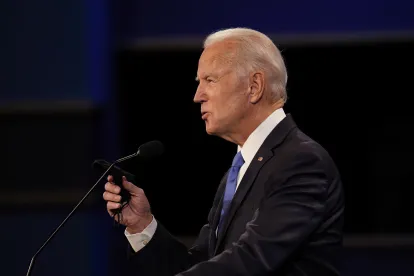After multiple extensions over the past three years, on Monday, January 30, 2023, President Biden announced that the COVID-19 national emergency and public health emergency (“PHE”) will officially end on May 11, 2023.
However, with less than four months until that date, providers must quickly review their operations and ensure their continued compliance with billing requirement changes that will result from the PHE’s expiration. As the Office of Management and Budget acknowledged in its Statement of Administration Policy when the announcement was made:
“An abrupt end to the emergency declarations would create wide-ranging chaos and uncertainty throughout the health care system—for states, for hospitals and doctors’ offices, and, most importantly, for tens of millions of Americans.”
Evident potential implications include:
-
Traditional Medicare and Medicare Advantage beneficiaries may lose their ability to obtain free at-home COVID-19 testing and treatments and may have to begin paying certain cost-sharing amounts relating to these and other testing and treatments.
-
Similar to Medicare and Medicaid, private health plans may begin requiring its members to pay certain cost-sharing amounts and requiring prior authorizations for COVID-19 testing, treatments, and related services.
-
Providers may also lose the government-funded revenue streams that have been provided pursuant to various Congressional allocation actions since the beginning of the PHE.
-
Certain telehealth flexibilities may no longer be available, including relaxation of certain data privacy and security requirements under, e.g., the Health Insurance Portability and Accountability Act of 1996 (aka HIPAA), unless such flexibilities are allowed to continue.
-
Providers may lose their ability to prescribe controlled substances via telehealth means and may be required, once again, only to provide prescriptions for such controlled substances pursuant to an in-person medical evaluation of the patient, unless such flexibilities are allowed to continue.
-
Physicians may lose protection for certain self-referrals under the blanket Stark Law waivers in effect during the PHE that were meant to ensure access to care for Medicare beneficiaries and Medicaid enrollees.
Notwithstanding these potential implications, the Centers for Medicare & Medicaid Services (“CMS”), to their credit, had already informed the health care industry about certain telehealth measures it had decided to continue to ensure access to care:
-
Medicare coverage for temporary telehealth services added during the PHE will continue through December 31, 2023.
-
Telehealth services provided in office settings will continue to be paid at the non-facility rate (e., higher payment) through December 31, 2023.
-
Clinical staff of hospital outpatient departments (including Critical Access Hospitals) may continue providing remote behavioral health services to patients in their own homes.
-
CMS added new billing codes for home health telecommunications technology for home health agency services to begin reporting on July 1, 2023, on a mandatory basis.
Lastly, State Medicaid and CHIP agencies will be required to begin, at any point between April and June, 2023, a 12-month unwinding period, which is a congressional requirement for States to return to normal eligibility and enrollment operations.



 />i
/>i
